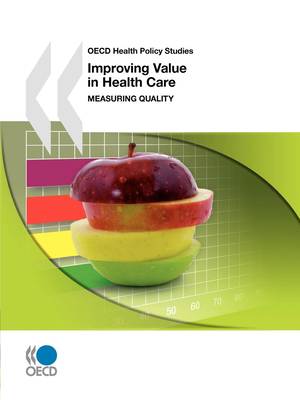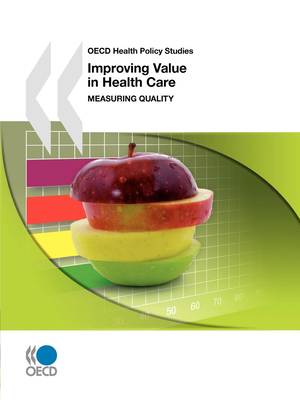
- Afhalen na 1 uur in een winkel met voorraad
- Gratis thuislevering in België vanaf € 30
- Ruim aanbod met 7 miljoen producten
- Afhalen na 1 uur in een winkel met voorraad
- Gratis thuislevering in België vanaf € 30
- Ruim aanbod met 7 miljoen producten
Zoeken
Improving Value in Health Care
Measuring Quality
Organization For Economic Cooperation and Development Oecd
Paperback | Engels
€ 29,45
+ 58 punten
Uitvoering
Omschrijving
Are breast cancer survival rates higher in the United States than in the United Kingdom and France? Are a patient's chances of dying within 30 days after admission to a hospital with a heart attack lower in Canada than in Korea? Are surgeons in some countries more likely to leave "foreign bodies" behind after operations or make accidental punctures or lacerations rates when performing surgery? The need for answers to these kinds of questions and the value of measuring the quality of health care are among the issues addressed in this publication. Many health policies depend on our ability to measure the quality of care accurately. Governments want to increase "patient-centeredness", improve co-ordination of care, and pay providers of high-quality care more than those who underperform. However, measuring the quality of health care is challenging. The OECD's Health Care Quality Indicator project has overcome some of the problems, though many remain. If policy makers are serious about improving the body of evidence on the quality of care, they need to improve their health information systems. This publication describes what international comparable quality measures are currently available and how to link these measures to quality policies such as accreditation, practice guidelines, pay-for-performance, national safety programmes and quality reporting. www.oecd.org/els/health Related reading: Health at a Glance: Europe 2010 (forthcoming); Health at a Glance: OECD Indicators 2009 (2009); OECD Health Policy Studies: Improving Health Sector Efficiency: The Role of Information and Communication Technologies (2010); OECD Health Policy Studies: Achieving Better Value for Money in Health Care (2009)
Specificaties
Betrokkenen
- Auteur(s):
- Uitgeverij:
Inhoud
- Aantal bladzijden:
- 100
- Taal:
- Engels
Eigenschappen
- Productcode (EAN):
- 9789264094802
- Verschijningsdatum:
- 9/02/2011
- Uitvoering:
- Paperback
- Formaat:
- Trade paperback (VS)
- Afmetingen:
- 210 mm x 279 mm
- Gewicht:
- 263 g

Alleen bij Standaard Boekhandel
+ 58 punten op je klantenkaart van Standaard Boekhandel
Beoordelingen
We publiceren alleen reviews die voldoen aan de voorwaarden voor reviews. Bekijk onze voorwaarden voor reviews.











